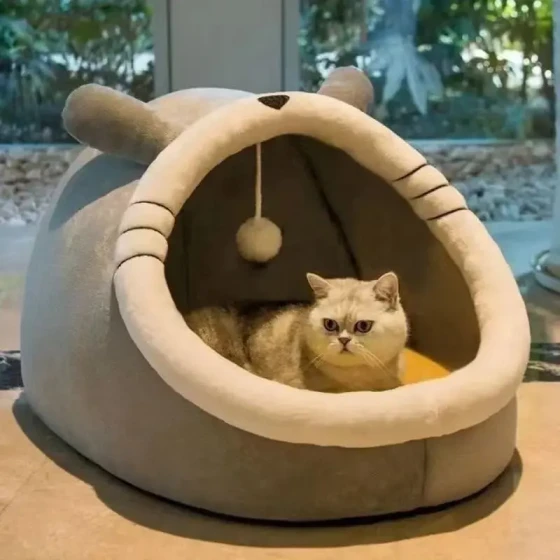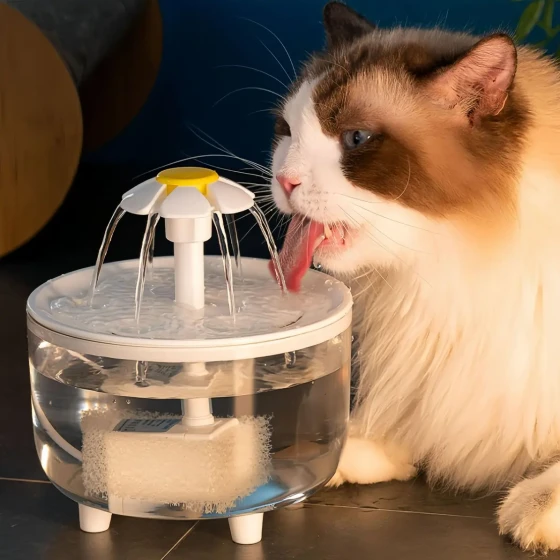How to Relieve a Cat's Nervousness

American Shorthair Cat
1. Signs of a Cat's Mental Tension and Depression
1. Anxious Cats
An anxious cat appears nervously tense, crouching low to the ground. Some may pant or shed fur, muscles tense, pupils dilated—these are common signs of anxiety in cats.
2. Aggressive Behavior
A usually gentle and affectionate cat may suddenly change its temperament, scratching and biting its beloved owner. Such abnormal behavior always has a cause. It may be that the cat feels unwell and should be taken to see a veterinarian. Sometimes cats also vent their frustration by damaging furniture or biting clothing.
3. Indoor Territory Marking
Changes in daily life or the addition of a new cat at home can disturb and suppress the cat. In these cases, it may spray urine indoors. Areas soiled by urine should be cleaned thoroughly with disinfectant to remove the cat's scent and prevent it from returning to mark the same spot.
4. Neurotic Grooming
Some cats under stress become excessively picky about their fur, licking or chewing a particular spot nonstop without any reason. This often causes dermatitis, eczema, or bald patches. Veterinarians may prescribe sedatives to ease the cat’s anxiety and depression in such cases.
5. Chewing Woolen Fabrics
Certain Oriental cats (detailed introduction), especially Siamese and Burmese cats, sometimes particularly like to chew wool sweaters or other knitted clothes. This regressive behavior to their kitten stage is also a result of some sort of stress.
2. How to Eliminate a Cat's Nervousness
When you first get a kitten, you might want to prepare a cute fluffy little ball to attract its attention. However, some kittens are naturally very shy and hide in fear when you look at them. If this happens, the following two suggestions might help you.
During the kitten’s first week in a new home, it will be cautious and timid. But as it gradually has more contact with people, the shyness will lessen somewhat. Give it more space and don't rush to make it familiar with you. When it feels comfortable with the new environment, it will gladly approach you.
To eliminate a cat’s nervousness, you can gently stroke it (initially, to prevent scratches, wrap it in a thick towel), gently stroke its head, and speak to it softly. Doing this daily at a fixed time, your shy kitten will soon trust you. Then even without wrapping it in a towel, it will allow you to touch its head. Remember, gaining a kitten’s trust requires enough patience!
"Tempting" a nervous kitten can also work wonders. Try preparing a tempting healthy meal for the kitten. When it eagerly forgets its fear and eats happily, you can gently stroke its head—of course, gently without sudden movements. This also requires the owner’s patience and persistence. Usually, your pet will finally accept and enjoy your affection.
Cats are very perceptive animals, sensitive to how you treat them. If a cat rejects you, it may feel threatened. You can try slowly approaching the cat in a different way to remove its nervousness toward you, and gradually the cat will accept you. (Source:PetsZone)





